Axis of Resistance or Axis of Interest? Reflections on the Israel–Iran War
When Zionist Israel launched a surprise yet meticulously planned attack on Iran on 13 June 2025, killing elite commanders and nuclear scientists, a wave of debate swept through Muslim circles on social media. The central question: Should Sunni Muslims support Iran or not?
Some distanced themselves from supporting either side, while others openly opposed Iran, even if that meant indirectly favouring Israel, citing the so-called Iranian Shiite project to expand regional influence and Tehran’s atrocities in Syria and Yemen. Yet, on the ground, many believers found satisfaction in watching Iran strike back against Israel, the Zionist occupation regime that continues to massacre hundreds of women and children daily in Gaza.
In one social media post, when someone rejoiced over Israel’s killing of Iranian commanders, justifying it by recalling the cruelty of political Shiism toward Sunnis, I responded by quoting these verses from the Qur’an:
Surah Ar-Rūm (30:1–5):
1. Alif-Lam-Meem.
2. The Romans have been defeated
3. In the nearest land. But they, after their defeat, will overcome.
4. Within a few years. To Allah belongs the command before and after. And on that day the believers will rejoice
5. In the victory of Allah. He gives victory to whom He wills, and He is the Almighty, the Merciful.
The believers rejoiced at the victory of the Romans (Ahl al-Kitāb) over the Persians (fire-worshipping mushrikīn). As Ibn ʿAbbās (رضي الله عنه) said:
“The Muslims used to prefer that the Romans, being people of the Book, defeat the Persians, who were idol-worshippers. Meanwhile, the polytheists of Makkah hoped the Persians would prevail, because they were more like them in religion.”
Then I added in my own words:
“Now you rejoice over the killing of Iranian commanders by Zionists, those same Iranians who, despite their sectarian deviations (being from the Rāfiḍah), are still people of the Qiblah. This joy aligns with the celebration of Islam’s enemies around the world.”
Personally, I believe this reflects the stance of most Muslims worldwide. Although they may reject Iran’s version of Islam and oppose its political ideology, many still found themselves rejoicing at every missile that shook Tel Aviv, especially in light of the brutal suffering unfolding in Gaza.
That said, I do not ignore or downplay the threats posed by Iran’s political ambitions in the region or the problematic nature of its ideological project.
The Complicated Middle East Politics
The Middle East’s geopolitical landscape is heavily shaped by the Sunni–Shia divide. Iran, a Shia-majority nation, and Saudi Arabia, the de facto leader of the Sunni bloc, have long been at odds. This sectarian rivalry has fuelled a range of proxy conflicts across the region in Syria, Iraq, Yemen, Lebanon, and Bahrain, where Iran backs groups like Hezbollah and the Houthis and ousted Assad regime in Syria. These actors form what is often referred to as the “Axis of Resistance,” supported by Iran both financially and militarily.
On the other side, Saudi Arabia leads a coalition of Sunni powers focused on maintaining regional stability and countering Iranian influence. Gulf monarchies, while united in their opposition to a nuclear-armed Iran, remain cautious. They understand that an outright escalation could destabilize their own security structures and threaten oil-dependent economies. Saudi Arabia, which once described Iran as “evil” and “the head of the snake,” has consistently opposed Tehran’s nuclear ambitions and condemned the 2015 U.S.–Iran nuclear deal. During his first term, President Donald Trump withdrew from that agreement and Saudi welcomed the move by Trump.
Since the 2023 peace agreement between Saudi Arabia and Iran brokered by China, Riyadh has adopted a more delicate approach. Just weeks before the latest escalation, Saudi Defence Minister Prince Khalid bin Salman reportedly warned Iranian officials to accept President Trump’s offer for a renewed nuclear deal or face the kind of Israeli strikes that followed a fortnight later. The UAE is said to have conveyed a similar message to Tehran earlier in March. When the Iran–Israel confrontation began, Saudi Arabia condemned the Israeli strikes and called for de-escalation, but notably stopped short of siding with Iran.
Qatar, another influential Gulf state, has long preferred a more conciliatory approach. It has consistently supported diplomatic solutions and was a key backer of the nuclear deal. Sharing one of the world’s largest natural gas reservoirs with Iran, Qatar has an interest in stable relations. Ironically, however, when Iran retaliated against U.S. strikes on its nuclear facilities, it targeted the Al-Udeid base in Qatar, which hosts American forces.
Under the leadership of Recep Tayyip Erdoğan, Turkey has asserted itself as a major Sunni power with ambitions across the region. Unlike Iran, Turkey backed the predominantly Sunni opposition in Syria and has made strategic investments in northern Syria, offering both military and logistical support to rebel factions and finally outsting the Assad regime and installing a new government led by Ahmed Al-Sharaa.
Despite significant economic ties, particularly Iran’s oil exports to Turkey, political friction between Ankara and Tehran remains high. The Kurdish issue is a particular flashpoint. Turkey firmly opposes any move toward Kurdish independence in northern Syria, while Iran has selectively supported Kurdish groups when doing so has served its broader regional agenda. Beneath all these tensions lies a deeper ideological contest. Turkey, invoking its Ottoman legacy, aspires to lead the Sunni Muslim world. Iran, on the other hand, continues to promote its revolutionary Shia doctrine.
Israel–Iran Escalation and the Response of World Powers
Israel’s decision to launch a direct assault on Iran while already engaged in conflicts in Gaza and Lebanon was shaped by pressing strategic calculations. Israeli Prime Minister Benjamin Netanyahu has started his rhetoric against Iran since 1992, claiming Iran is pursuing nuclear weapons. He has repeatedly stated, including during Trump’s first term, that Iran is just months away from building a bomb. However, what surprised many this time was Netanyahu’s decision to act militarily even when US President Trump initially appeared reluctant.
The launch of Operation Rising Lion on 13 June 2025 was carefully timed to take advantage of what Israel perceived as a window of opportunity. Iran’s regional network, often referred to as the “Axis of Resistance,” was visibly weakened. Hezbollah’s leadership and arsenal in Lebanon had suffered significant losses, Hamas in Gaza was under severe pressure, and the U.S.–Yemen truce along with instability in Syria had reduced Tehran’s ability to mobilize its allies effectively. With these traditional proxies subdued, Israel judged that striking Iranian territory would carry a lower risk of immediate, widespread retaliation.
The sudden outbreak of war between Iran and Israel sparked fears of a much broader conflict. Many people began circulating videos of Islamic scholars discussing the "Malḥamatul Kubrá"—the great end-times war mentioned in Islamic eschatology. According to various interpretations, this battle is expected to occur shortly before the end of the world, in which Muslims would initially ally with the remnants of the Roman Empire, often interpreted as Western powers, against a common enemy. However, the Roman side is later expected to betray the Muslim side, leading to a global confrontation. While such references stirred emotional and religious discussion, I personally believe that the time for such an event has not yet come and its interpretations remain diverse and complex.
As Israel struck and the U.S. entered the fray, concerns over a potential global escalation intensified. Russia warned against further U.S. involvement, and China called for de-escalation. Yet both Moscow and Beijing ultimately refrained from direct military action. Their responses, although stern in tone, were confined to diplomacy and public statements.
China, a key economic partner of Iran through the Belt and Road Initiative, chose to play it safe. While it issued calls for calm, it avoided taking any military or logistical steps. China which supported Pakistan, with aircraft, missiles, and battle management technologies, against India, but never seen providing that scale of military support for Iran. The priority for Beijing remained economic stability and safeguarding its commercial interests. After the ceasefire, President Trump even mocked China with a meme, saying, "Now China can buy more oil from Iran."
Russia, preoccupied with its ongoing war in Ukraine and still dependent on Iranian drones and support, limited itself to strong verbal condemnations and offered to mediate. It avoided military engagement, unwilling to provoke a broader confrontation with the United States or Israel.
Both Russia and China, though aligned with Iran in several ways, clearly prioritized their long-term economic and played politics of interests. More than rhetoric both were not ready to provide any military support for Iran.
As for the United States, President Trump adopted a mixed approach. Initially cautious, he provided defensive backing to Israel but held off on offensive operations. Once Iran responded, the U.S. launched targeted strikes on three Iranian nuclear sites. Both Israel and Iran didn’t want a long war. Trump’s threat of further escalation if peace was not achieved, and taking an easy approach towards Iran’s symbolic retaliatory missile attack on the U.S. Al-Udeid airbase in Qatar, helped bring the situation under control. Through this combination of restraint, pressure, and ceasefire diplomacy supported by Qatar, the Trump played a key role in ensuring that the conflict ended at least for the time being. He even threatened Israel to bring back the pilots not to breach the ceasefire.
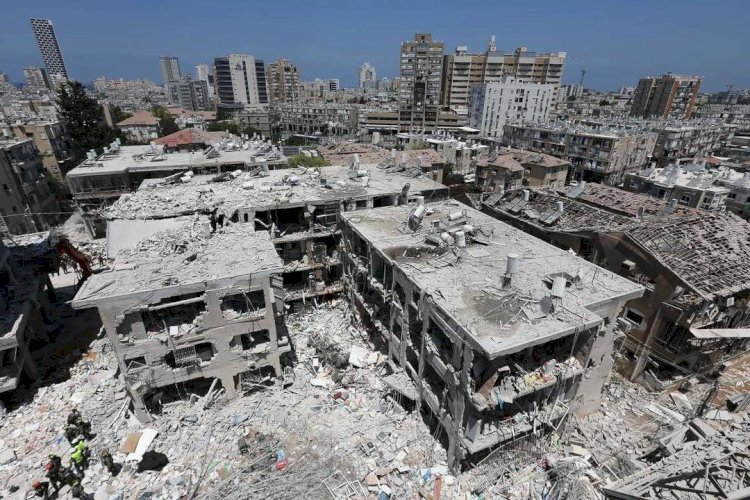
Who Gained and Who Lost
The 12-Day War inflicted heavy human, material, and reputational costs on both Iran and Israel, significantly reshaping their strategic landscape.
Iran lost an estimated 600 to 700 individuals, including at least 20 senior IRGC commanders and dozens of nuclear scientists who were key figures in its nuclear programme. According to Human Rights Activists in Iran and the Iranian Health Ministry, its nuclear infrastructure at Natanz, Fordow, Isfahan, and Arak was severely damaged. While the attacks delayed progress by months, they did not eliminate Iran’s capabilities. Iranian media also reported widespread damage to civilian infrastructure, including hospitals, and noted mass displacement from Tehran to Mashhad.
Although Israel’s Iron Dome, David’s Sling, and Arrow systems successfully intercepted the majority of incoming Iranian missiles, the sheer volume of fire overwhelmed its defences. Many projectiles penetrated deep into Israeli territory, causing significant damage to critical infrastructure. Military experts warned that Israel’s missile defence systems cannot sustain such pressure without continuous U.S. support.
Israel suffered serious losses as well. Around 28 to 30 civilians were killed, and more than 2,500 injured, primarily from missile and drone attacks. Key infrastructure was hit. Residential towers, hospitals, the Tel Aviv stock exchange, and the Kirya (Kiryat HaMemshala, Israel’s Defence Headquarters) sustained extensive damage. According to Al Jazeera and Sky News Arabic, over 9,000 people were displaced. Airports were closed, workplaces were shut down or operated at limited capacity, and reconstruction costs are estimated at 1.3 billion dollars, with nearly 400 million dollars spent daily on military operations.
The Soroka Medical Center in Beersheba was also struck, injuring dozens and prompting evacuations. Hospital operations were disrupted, and patients were forced to shelter underground. In areas around Tel Aviv and Haifa, missile fragments shattered homes and restaurants. Hundreds of buildings, including schools and offices, were damaged. Extensive evacuation orders were issued throughout central Israel. The U.S. ambassador commented after the ceasefire, “After twelve days, we finally had a good night’s sleep.”
In his statement announcing the ceasefire on June 23, 2025, Israeli Prime Minister Benjamin Netanyahu declared that Israel had achieved its objectives in the brief but intense war. However, this claim raises serious questions.
At the outset, Netanyahu outlined two primary goals: uprooting Iran’s nuclear programme and crippling its ballistic missile power. He also hinted at the broader ambition of weakening or even toppling the Iranian regime. Have any of these goals been realised? The evidence suggests otherwise. It appears that Iran had already transferred significant quantities of fissile material out of the Fordow facility, one of the key targets in the U.S. airstrikes. The narrative of “uprooting” Iran’s nuclear capability seems more aspirational than actual.
Moreover, contrary to Israel’s aim of destabilising the Iranian regime, the targeted killings of senior IRGC commanders during the war triggered a wave of domestic unity. Although the IRGC is a controversial and often resented institution within Iran, the strikes were widely perceived—even by the regime’s critics—as an attack on the nation itself. This perception strengthened the government’s internal position rather than weakening it. Instead of sowing division, the war seemed to have rallied the Iranian public around their leadership.
If anyone emerged as a political winner, it was U.S. President Donald Trump. He managed to portray himself both as the man who halted Iran’s nuclear advance and as the peacemaker who brokered a ceasefire between two arch-rivals. By ordering the B2 bomber strikes on Iranian nuclear sites, Trump helped Israel avoid further exposure and saved its strategic face. Through his posts on Truth Social, Trump has hinted that he views his role in this conflict and in easing tensions between other powers such as India and Pakistan as qualifying him for recognition Nobel Peace Prize. Already his name has been suggest for the Prize and his social media posts on this reflects his characteristic tendency to centre diplomatic efforts around his own persona.
Iran’s Stance on the Palestinian Cause
Iran has long positioned itself as a defender of the Palestinian cause, extending support to groups like Hamas and Islamic Jihad. However, during the June 2025 conflict, Iran’s actions indicated a clear prioritisation of self-defence over regional solidarity. Despite the ongoing Israeli assault on Gaza, Iran did not use its missiles to support the Palestinians. Its military response was directed only at retaliating for attacks on its own territory.
When the ceasefire was negotiated, Iran imposed no conditions related to Gaza. This either points to Iran’s lack of leverage at the time, as some have argued, or exposes a more uncomfortable truth: that Gaza and the Palestinian struggle are tools in Tehran’s strategic playbook, used only when they align with its national interest. As long as Palestine serves that interest, it is championed. When it doesn't, it is ignored. This sentiment echoed across social media in the aftermath of the war, with many users questioning why Iran remained silent on Gaza during the ceasefire talks.
In the heat of war, emotions often blur judgment. Crowds chant, influencers stir sentiment, and some begin to frame political manoeuvres as religious obligations, declaring alliances and enmities not as temporary strategies, but as permanent creeds. But once the dust settles, the truth becomes clearer.
Adham Sharqawi, a prominent Arabic author and social media voice, reflected this sentiment in his posts on Facebook. He described recent developments as part of the politics of interests. He noted how, at one point, some people celebrated Erdoğan as a revivalist caliph, likening him to ʿUmar ibn al-Khaṭṭāb (رضي الله عنه), and treating any criticism of him as blasphemy. But Erdoğan never claimed to be a caliph. His record shows that he supports causes when they serve Turkey’s interests and withdraws when they don’t. He sent troops to Libya for economic and geopolitical purposes and intervened in northern Syria when it benefitted Ankara. But when Gaza was bleeding—far closer than Tripoli—he remained a spectator, issuing statements but taking no action. In this equation, Libya was about economy. Gaza was about creed. And in the realm of politics, interest prevails over principle.
Sharqawi extended the same critique to Iran. He pointed out that Iran never claimed to be acting on behalf of Gaza. Its missiles were launched only when its own sovereignty was violated. Throughout over 650 days of siege and suffering in Gaza, Iran remained silent. When it finally entered the war, it did so for itself. And when it exited, it negotiated ceasefire terms that did not even mention Gaza. Like any state, Iran supports allies—whether Sunni or Shia—when doing so serves its strategic goals. It has backed Sunnis when useful, and abandoned Shia groups when they no longer served a purpose. Politics, he reminded, has no madhhab. It does not adhere to sect or creed. It is driven by calculation.
As alliances continue to shift and political agendas evolve, we must remember that geopolitics is not dīn. Not every strike is a strike for the Ummah.
References
https://www.aljazeera.com/news/2015/4/14/why-saudi-arabia-and-israel-oppose-iran-nuclear-deal
https://www.nytimes.com/2025/06/17/world/middleeast/iran-russia-relationship-analysis.html
https://asiatimes.com/2025/06/why-chinas-sitting-on-the-iran-war-sidelines/#
https://www.newarab.com/news/explainer-what-were-real-costs-iran-israel-war
https://www.facebook.com/share/p/1JGk1moxgq/
Disclaimer
The views expressed in this article are the author’s own and do not necessarily mirror Islamonweb’s editorial stance.

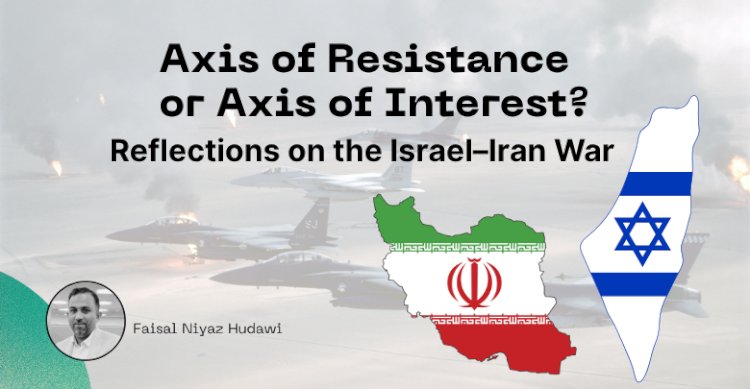


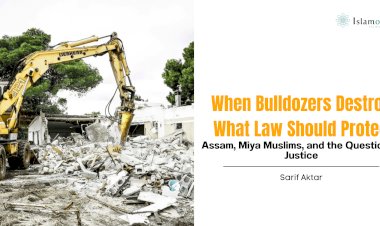
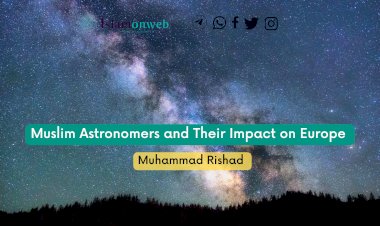
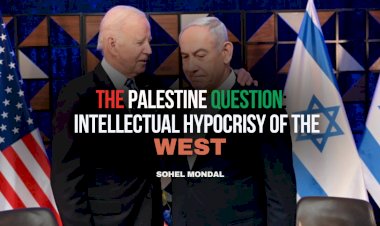


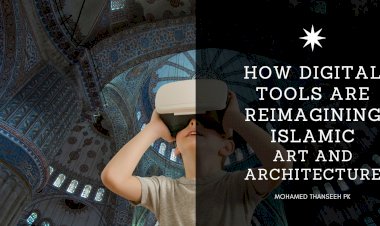














Leave A Comment